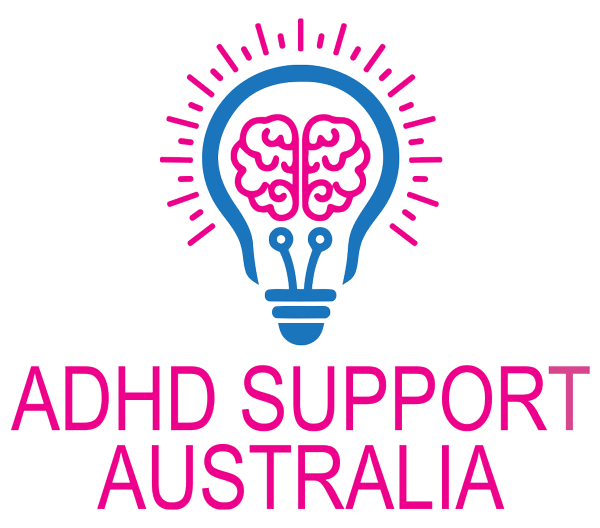
The Positive Aspects of ADHD and Successful ADHD Adults
Finally, a study that can support my clients in moving forward! If you think it’s tough for kids with ADHD to thrive amongst the social stigma, then imagine how it feels for an adult with ADHD, given most of our population is not aware that ADHD may persist into adulthood. Late last year a study was released called “Positive Aspects of Attention Deficit Hyperactivity Disorder.”
The majority of my clients are adults in their most vulnerable moments (no one comes to a coach because everything is fantastic) so as an ADHD and EF Coach, I’m in a position to see first-hand the difficulties my clients battle against every day.
Whether they be doctors, dentists, teachers, in between jobs, plumbers or university level students, despite their brilliance and talents, they are hurting. But they might not show it. They are often living a dual existence. Often labelled as affable, funny, crazy and laughing it off in their day-to-day existence, retreating when alone and feeling the effects of negative self-judgment, frustration and shame.
They already know what is going wrong, they live it and feel it. So how about we give them the language of what is and can work in their favour?
So what’s so good about being ADHD?
The brilliant Dr Ned Hallowell, a true pioneer for adults with ADHD (he himself being ADHD and also Dyslexic), embraces the differences that being ADHD brings. Dr Hallowell talks about how we “build a life on developed strengths”; and said recently on his podcast, that it is not the traits of ADHD that are the disability, it is when the traits aren’t managed – that is where the true disability is; with the anxiety, the negative self-talk and the unhappiness that comes with being misunderstood.
In a paper by Sedgwick, Merwood & Asherson (October 2018), called Positive Aspects of Attention Deficit Hyperactivity disorder – A Qualitative Investigation of Successful Adults with ADHD, they outlined the following:
The behavioural characteristics of ADHD do no exist in a binary form, this meaning that it is not a case of being normal versus abnormal. The behaviours can be viewed as being more on a continuum or often referred to as a “spectrum”. This can be easily understood as we look at ADHD through challenges with inconsistent executive functioning.
An important basis to this are the concepts introduced by Martin Seligman and Mikaly Csiksgentmihalyi – the notion of positive Psychology and “flourishing”. This is an intentional move away from deficit focused view of mental health towards a more strengths based view emphasising the positive aspects, and importance of positive emotions, engagement, relationships and accomplishments.
Through the study, they noted that areas where participants with ADHD excelled were in the following areas:
Cognitive Dynamism – energised attention, intense concentration, complete absorption in an activity that produces intense enjoyment. Research by Whit & Shah 2006, 2011) found that adults with ADHD had more real time, creative achievement than those without.
Courage – All participants reported being viewed by others as “non-conformists” and expressed “always having felt different, … like they were outsiders”. Bravery allowed for their natural sense of adventurousness, spontaneity and thrill-seeking.
Integrity – the participants said being open about being ADHD has made them feel authentic and honest, part of which might drive their “impulsive actions”. Their curiosity and spontaneous adventures and persistence was useful in driving them to achieve their goals.
Energy – An abundance of energy (capacity for action) was described as something all participants positively attributed to their ADHD. One said “If you can learn how to harness it, to control and direct and focus it on the right things, then the positives have a huge potential.”
Humanity – those in the group also described a natural ability for humour, some identified that this would “be missed if their ADHD went away”. They felt ADHD made them more sensitive than other people, but this enabled them to recognise feelings in self and be aware of the emotional states of others. One stated, “The emotional rollercoaster … the highs and lows … make you feel alive”.
Resilience – strategies to cope with stressors – one participant spoke about “Appreciating the good things you have … you try and deal with the traits that make your life difficult … like rationalising and accepting these traits.”
Transcendence – the openness to experience, noticing beauty in the environment and associated feelings of awe, positive affect.
In summary, the article questioned the necessity to focus on the “disability” aspects of ADHD and see these traits as being valuable and worthy of conservation. It noted that not all symptoms or traits of ADHD are “maleficent”, detrimental or harmful, but rather positive, human qualities, assets and attributes that can promote high function and indeed “flourishing”.
The author, Monica Hassall is an ADHD & Executive Function Coach at Connect ADHD in Queensland, Australia.
Monica has a health profession and specialised ADHD background, including completing Advanced ADHD Coaching training at the ADD Coach Academy, the only ADHD Coaching training group accredited with the International Coach Federation. She is active in the national and international ADHD treatment community, holding memberships in national professional groups, international coaching organisations, and local, national and international professional peer and cross-functional health professional review groups.
